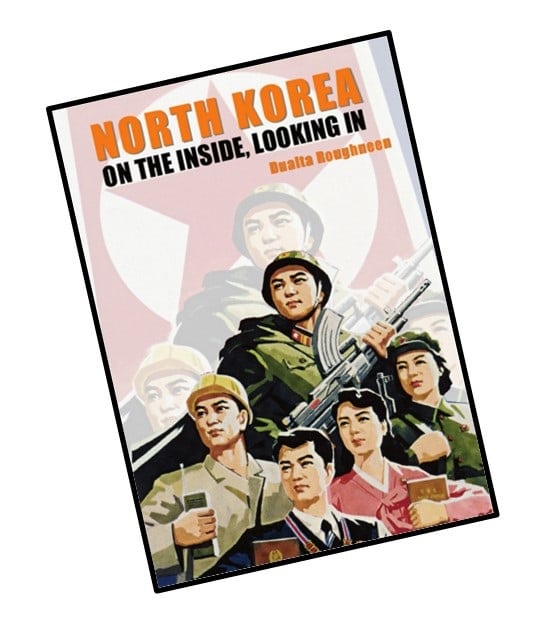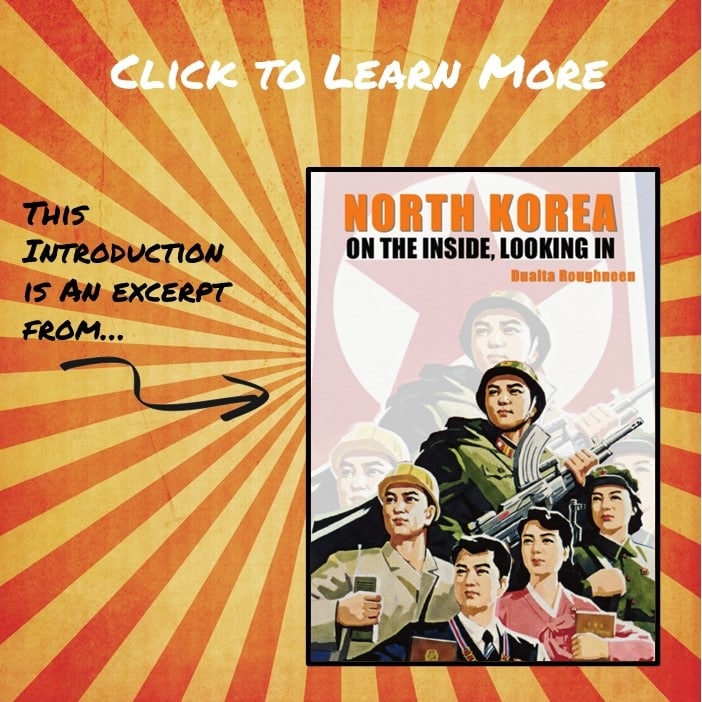
Introduction
The proletarians have nothing to lose but their chains.
They have a world to win.
The Manifesto of the Communist Party
It was the era of the Celtic Tiger in Ireland and Irish people were no longer travelling only to the United Kingdom and the United States to emigrate. Tiger travel was very much a rite of passage. Students were getting J-1 visas to the US to party for the three months of their first university summer; others were taking a year out and heading to Australia to do fruit picking and bar work, and go surfing; holidays in Asia were increasingly popular, with the beaches of Thailand the main attraction. North Korea, however, was not a place that ever featured in anyone’s travel plans. The Far East was never really on my radar either, until one summer, just after I had returned to Ireland from a tough but very exciting year in Afghanistan. It was 2004. I was at a loose end, and keen to spread my wings in another direction. Sierra Leone and the Democratic Republic of the Congo were possibilities, until the offer of a job in North Korea came along.
To start off, you should be aware of my circumstances. I am a civil engineer by trade – unfortunate in certain respects, I used to think. However, this short career, with the limited technical expertise gained working as an engineer on roads and landfills in Ireland, with a construction company for nine months, and for local government on a landfill for a similar length of time, has afforded me opportunities to travel to some odd little corners of the world. Both jobs ended to enable me to go travelling. Whether the travelling is a product of my desire to be an aid worker, or my job as an aid worker is a front to my desire to travel, I am not sure. I would like to think that the good in me is driving the selfish, but who can tell? Either way, I get to see some weird and wonderful places for nice lengths of time, and get paid for it.
This isn’t the heart-rending tale that you might expect from an aid worker’s diary. It isn’t a story about hungry children in dustbowl Darfur, or tears and suffering in Tibet, or one of putting smiles on hungry faces. This is much less than that, much more mundane. But once in a while, I am in the privileged position of being able to peer into the home of a North Korean rural dweller. I get to see the simple delight one little tap and one metre of galvanised-iron pipe can make to the life of a little old woman who has been getting water from the river for the last twenty years since the big pump-house down the river breathed its last breath. No life saved, but a very simple, yet important, difference in the woman’s life. No more washing clothes in the ice-cold river in winter, no more carrying buckets from the stream for drinking and for cooking. Hopefully no more sick children; a clean, warm house and a back that doesn’t ache as much when the cock crows. That’s the theory. The limited access we have as foreigners to follow up and monitor projects means that we can’t be sure.
Like most people, I knew very little about North Korea before I went, except the few excerpts and snippets that made it into the Irish news. I knew it was somewhere very different, a reclusive state with some variant of communism. I began to read a bit more, and then there was no option but to grab my golden ticket and board the plane. There were personal considerations – committing to a year alone in a strange new world wasn’t easy but the DPRK had grabbed my attention. The last bastion of Communism in the Stalinist–Leninist mould, it may not be around much longer. I knew that it was a strange sort of privilege to get paid to visit the place. Few ever get to go there.
I managed to squeeze more than the year out of my contract, and ended up in the place for more than two. There was something addictive about the country, about the people and about the way of life. It is a strange bubble for expatriates to live in. I met people who had been there much longer than I had been and a few acquaintances remain.
What is strange and exotic about the country gradually becomes ultra-routine. The country is oddly banal; the circle of people an expat can mix with socially is incredibly small, and over time the lifestyle kills softly. Living in a closed community, with limited travel, the feeling of not being sure if you are being watched and monitored, doing pretty much the same things day in, day out, creates a bubble that shields you from the harsh realities of life in the country. You never get to really know an average Korean, or really understand their life, however long you stay. You never get to see the worst aspects of life there. Expatriate life in developing countries, in particular working with the UN and NGOs, tends to be a life bubble-wrapped. In North Korea, however, it is not the NGOs that provide the wrapping, but the Korean government.
When I knew I was going to Korea, and had learned that Internet and email were almost impossible at the time, telephone calls ridiculously expensive, and international post extremely slow, I decided to keep an electronic diary of my time there, in an effort to stay in touch with people. I had never even heard of a blog, though the authorities would not have welcomed such a thing if I had attempted it. In the end, the e-diary lasted only a few emails, as I realised that people were not going to keep reading it. However, maintaining a record of my time became a bit of a mania with me. For about the first six months, I kept an intense record of my stay before gradually weaning myself off long before I left the country.
What follows is a record of my thoughts from my time there, as they happened. I have avoided going back to correct any of my thoughts that may have evolved or been proven wrong over the duration, in order to maintain a fair representation of my state of mind while I was there. I never expected to be in the country as long as I was – upon my arrival I was already planning my departure. Gradually, though, I forgot to get around to leaving, until I was almost forced out by the Government. It was a good job that they did push me. Though I would never be an apologist for the State, I was gradually becoming ambivalent to the regime there; I was not really seeing things for what they actually were, and I was getting my feet under the table. My affections for individuals, and for Korean people in general, were becoming a sedative, and getting mixed up with my views toward the regime. Much reporting in the media assumes, because the system is grey and stifling, that the people are somehow the same. This is not the case at all, and I hope my scribbles manage to convey some of the colour I saw.
Since my first exodus from the country, I have been back there to work for a few more months, helping to re-establish some water programmes that I had designed, and then for one more week, a year later, made possible thanks to some friends. A few people who I consider friends I was not able to meet again. They had moved on in life; it is almost impossible for an outsider to penetrate the boundaries of Korean society. I hope that someday I will get to travel back to say hello and find out how the people I cannot contact at the moment are doing. I hope that this will be under the shadow of the invisible hand rather than the iron fist.

